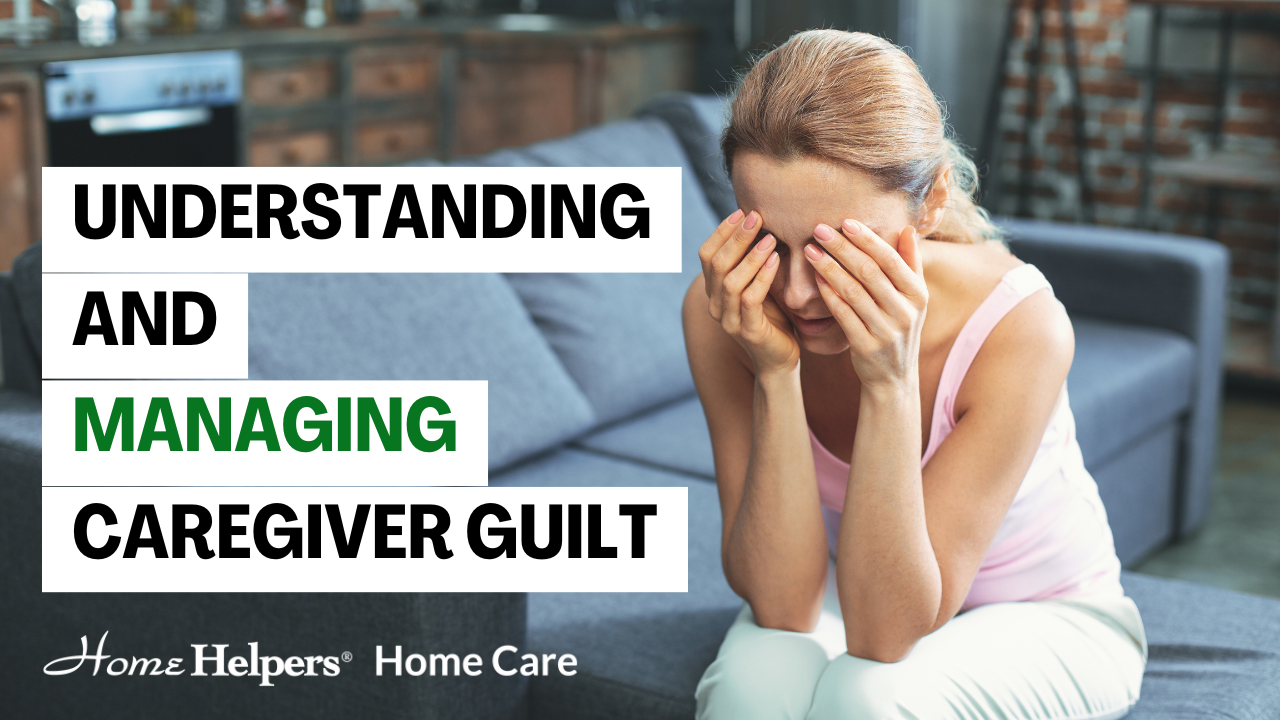Understanding and Managing Caregiver Guilt

Author: Home Helpers Home Care
As caregivers, we pour so much of ourselves into supporting our loved ones. It’s an act of love, but it can also come with feelings of guilt that weigh heavily on our hearts. Caregiver guilt often arises from believing you’re not doing enough, feeling torn between responsibilities, or making tough choices about your loved one’s care. While these emotions are common, they don’t define your worth or the care you provide. Let’s explore what causes caregiver guilt and how to manage it with compassion and grace.
Common Causes of Caregiver Guilt
- Feeling You’re Not Doing Enough
Balancing caregiving with other parts of your life—like work, children, or your own health—can leave you feeling stretched thin. It’s easy to feel like you’re falling short, even when you’re giving so much. - Decisions About Professional Care
Choosing to place your loved one in a care facility can feel like a betrayal of your promise to care for them, even when it’s the best option for their well-being. - Taking Time for Yourself
Carving out time for your own needs can feel selfish, but the truth is, taking care of yourself is essential to providing the best care for others.
Strategies to Manage Caregiver Guilt
- Recognize Your Feelings
First, give yourself permission to feel. Guilt is a natural response, but it’s not a reflection of your love or dedication. - Set Realistic Expectations
You’re only human. Acknowledge your limits and let go of the idea that you have to do it all. Caregiving isn’t about perfection; it’s about doing your best with the resources you have. - Find a Support System
You’re not alone in this journey. Connecting with others who understand caregiving—whether through a support group or online community—can provide encouragement and valuable perspective. - Make Self-Care a Priority
Your well-being matters. Take time to recharge with activities that bring you joy, peace, and fulfillment. When you care for yourself, you’re better equipped to care for others. - Challenge Negative Thoughts
When guilt creeps in, pause and reframe your thoughts. Instead of focusing on what you could do better, remind yourself of everything you’ve already done with love and dedication.
Moving Forward with Compassion
Caregiving is one of the most selfless acts of love, but it can also be one of the most emotionally challenging. Remember, guilt is a sign of how deeply you care. By embracing realistic expectations, building a support system, and giving yourself grace, you can ease the weight of caregiver guilt and focus on the meaningful impact you’re making in your loved one’s life.
Sources:
- Caregiver Relief: Navigating the Emotional Terrain of Caregiving: Understanding and Overcoming Caregiver Guilt
- Caregiver Connect: I Sometimes Feel Guilty as a Caregiver. Is That Normal?
- Caregiver Support Network: Overcoming Caregiver Guilt: Finding Balance and Self-Care
- Psychology Today: 4 Strategies to Manage Caregiver Guilt
- My Wellbeing: Understanding Guilt Complex
